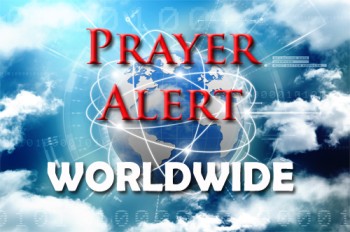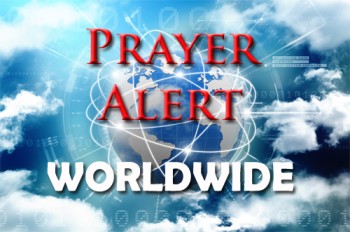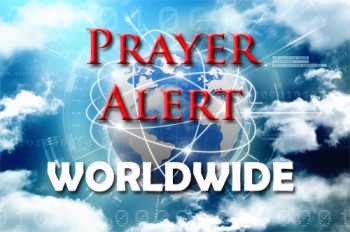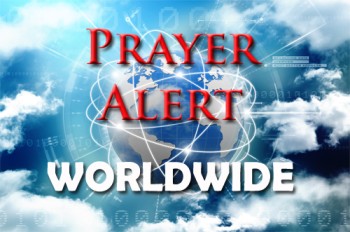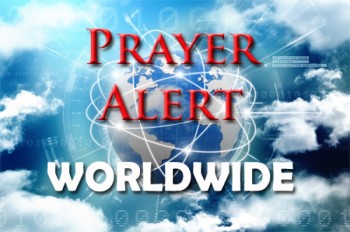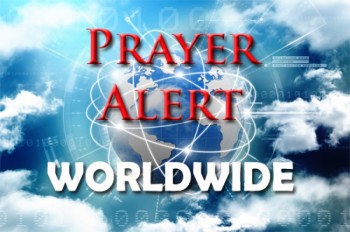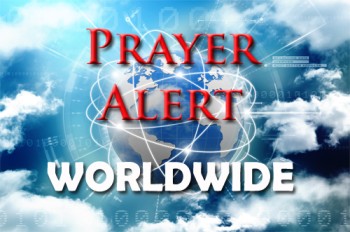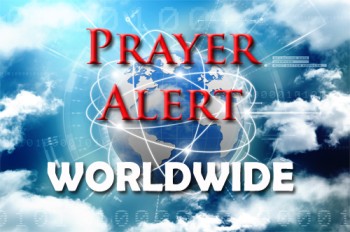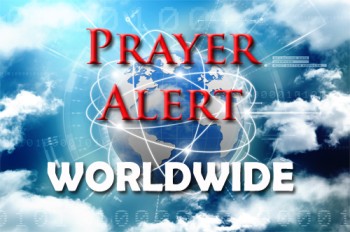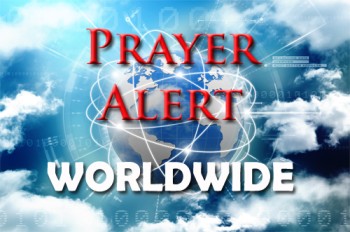Displaying items by tag: Africa
South Africa: Ramaphosa's second term, but with a coalition government
Cyril Ramaphosa has commenced his second full term as president, after his party formed a coalition government. In his inauguration speech, Ramaphosa highlighted the necessity for leaders to work together to address deep inequalities, warning that failure to do so could destabilise the nation. The ANC, governing since apartheid ended in 1994, lost its majority for the first time, securing only 40% of the vote and losing 70 seats. The Democratic Alliance (DA), which received 22%, and three smaller parties joined the coalition, having agreed a common agenda of fixing the country’s infrastructure, providing basic services such as water and power, and creating jobs. Ramaphosa has said that the country’s society remains deeply unequal and highly polarised, so he knows that there are some huge challenges ahead.
South Africa: ANC’s coalition dilemma
As predicted before the elections, the African National Congress (ANC) has lost its parliamentary majority, securing only 40% of the vote. To govern, it needs a coalition partner or might attempt a minority government. It could partner with the Democratic Alliance (DA), which won 22% but is widely seen as aiming to protect white minority privileges. Alternatively, it could align with Jacob Zuma's uMkhonto weSizwe (MK), which surprised many by gaining 15% of the vote, or Julius Malema's Economic Freedom Fighters (EFF); a third alternative is a government of national unity. Cyril Ramaphosa insists any coalition must respect the current constitution: the ANC, EFF, and MK combined still fall short of the two-thirds majority needed for constitutional changes. The decision about what to do will have a major impact on South Africa, which faces major security and economic challenges.
Somalia: educational consquences of huge floods
Heavy rains have flooded schools in Somalia's central Hiran region, forcing over 37,000 students out of school. The flooding has damaged learning materials and classrooms, displacing many students to distant locations and complicating efforts to resume education. Parents fear the disruption will negatively affect their children's performance in upcoming national exams, and local teachers are concerned about the long-term impact on education. Parents are urging the government to establish schools on higher grounds to avoid future disruptions. Last year, the government organised special exams after similar flooding incidents. Officials say they are committed to ensuring students can participate in exams despite the current challenges.
South Africa: has the ANC lost its way?
For years, the African National Congress (ANC) stood as a beacon of hope in South Africa, dedicated to ending white minority rule and championing democracy and equality. Revered under Nelson Mandela, the ANC's transformation from a liberation movement to a ruling political party brought high expectations. However, thirty years later, many South Africans feel disillusioned, believing it has failed to fulfil its promises. Former president Jacob Zuma, ousted in 2017 due to corruption allegations, has returned with a new party, uMkhonto weSizwe, criticising his successor Cyril Ramaphosa, but his disqualification from a parliamentary run due to a criminal conviction has heightened political tensions. The 29 May elections see the ANC struggling to maintain its majority and possibly facing having to form a coalition government - which would mark the most significant political shift since the end of apartheid in 1994.
WHO gives Namibia recognition for almost eliminating HIV
The World Health Organisation (WHO) has announced that Namibia has become the first African nation, and the first high-burden country worldwide, to nearly eliminate mother-to-child transmission of HIV and hepatitis B. This achievement is especially notable because Namibia hosts over 200,000 people living with HIV, with the disease disproportionately affecting women. Despite these challenges, the country has achieved nearly universal HIV testing for pregnant women and a robust treatment system, which have reduced transmission by 70% in twenty years. In 2022, only 4% of newborns from HIV-positive mothers contracted the virus, while nearly 80% received a timely hepatitis B vaccine. The WHO has awarded Namibia a ‘silver tier’ for its hepatitis B efforts and a ‘bronze tier’ for HIV reduction. These accomplishments underscore the critical impact of committed leadership and effective public health strategies.
South Africa: many killed and missing after building collapses
Rescuers are urgently searching for 42 individuals missing after a five-storey apartment building collapsed on 6 May. 33 people have been rescued from the debris, with seven confirmed fatalities. The building was under construction when it collapsed, prompting an ongoing investigation into the cause. Most of the 75 workers originally at the site are still unaccounted for. The rescue operation, which involves lifting collapsed floors, is expected to last up to five days. President Cyril Ramaphosa, expressing sympathy for the families, has called for the investigation to ‘bring closure to the community and prevent a repeat of this disaster’. Over 200 rescuers, including sniffer dogs and heavy equipment, are continuing to search through the now-flattened site.
Nigeria: fuel shortages causing major problems
Nigeria is grappling with a severe fuel shortage, exacerbating the hardships faced by its citizens (especially those reliant on public transport). Long queues for fuel have emerged in major cities, and prices have surged by over 15%. Authorities attribute the shortage to logistical challenges disrupting supply chains. Despite being a top crude oil producer in Africa, Nigeria frequently experiences petrol shortages due to strikes and supply disruptions. The state oil firm has accused fuel companies of exploiting the situation for profit. While Nigeria recently opened Africa's largest refinery in Lagos, it currently only produces diesel and aviation fuel. With the inflation rate over 30%, the government has just announced a 35% pay increase for civil servants, but the monthly minimum salary rate is still unchanged. See
East Africa: heavy flooding causes many deaths and displacements
Heavy flooding in Kenya, after weeks of intense rain and flash floods, has left at least 103 people missing, with 71 confirmed dead. Most of the missing are from Mai Mahiu, near Nairobi, where on 29 April flooding near a railway bridge, caused by a clogged tunnel, caused at least 45 deaths. The country’s president William Ruto has ordered the military to help search and rescue efforts. Nearly 191,000 Kenyans have been displaced by the floods, which are said to have been exacerbated by the effects of El Niño. The government has established 52 displacement camps to provide temporary shelter, but with more rain forecast the situation may worsen. The floods have affected other countries: a week ago, Tanzania’s president said that 155 people had been killed and 200,000 displaced. See
Niger / Benin: oil starts to flow along pipeline
Despite strained diplomatic ties, Benin is hoping for revenue from transit duties and taxes on Nigerien oil passing through Sémè Kraké. The site marks the terminus of a 1,980km pipeline from Niger's Agadem oil fields; oil has started to flow along it, raising hopes for two thousand new jobs in Benin. The pipeline aims to transport 90,000 barrels per day, bolstering Niger's status as a regional oil player. In July 2022 a military coup in Niger disrupted optimism, leading to border closures by Benin in solidarity with ECOWAS sanctions. However, President Talon later eased restrictions to facilitate trade, signalling a desire for improved regional relations, even though Niger's junta has been prioritising ties with Burkina Faso and Mali rather than with Benin. Due to the new pipeline, Niger's oil production is set to rise significantly, with substantial reserves awaiting exploitation.
Africa: USA may need to improve relationships due to shortage of minerals
The USA may need to reassess its relationships with African nations as it faces a potential shortage of critical minerals essential for weapon manufacturing. This comes as it and its allies provide arms to conflict zones like Ukraine and Israel. In both cases, these include advanced missile systems which rely on critical minerals found in Africa. These include cobalt, sourced from the Democratic Republic of Congo, antimony from South Africa, and graphite (found in many countries). A study group has warned that a shortage of these minerals could hinder military capability and national security, impacting the arms race with China. In its policy towards Africa, the US has shown renewed interest in the DRC and Zambia through the rebuilding of the Lobito Corridor, a rail and road network which will link the two countries to Angola and straight to the Atlantic Ocean.
